– By Tom Schaffner
Singin’ the Blues of the City at Chess Records in Chicago
Several decades ago, in a small terra cotta structure located at 2120 S. Michigan Ave., a recording studio helped propel a Chicago record label into one of the most famous in the music business. But what happened to Chess Records in Chicago, the city’s most prolific record company in the 20th century?
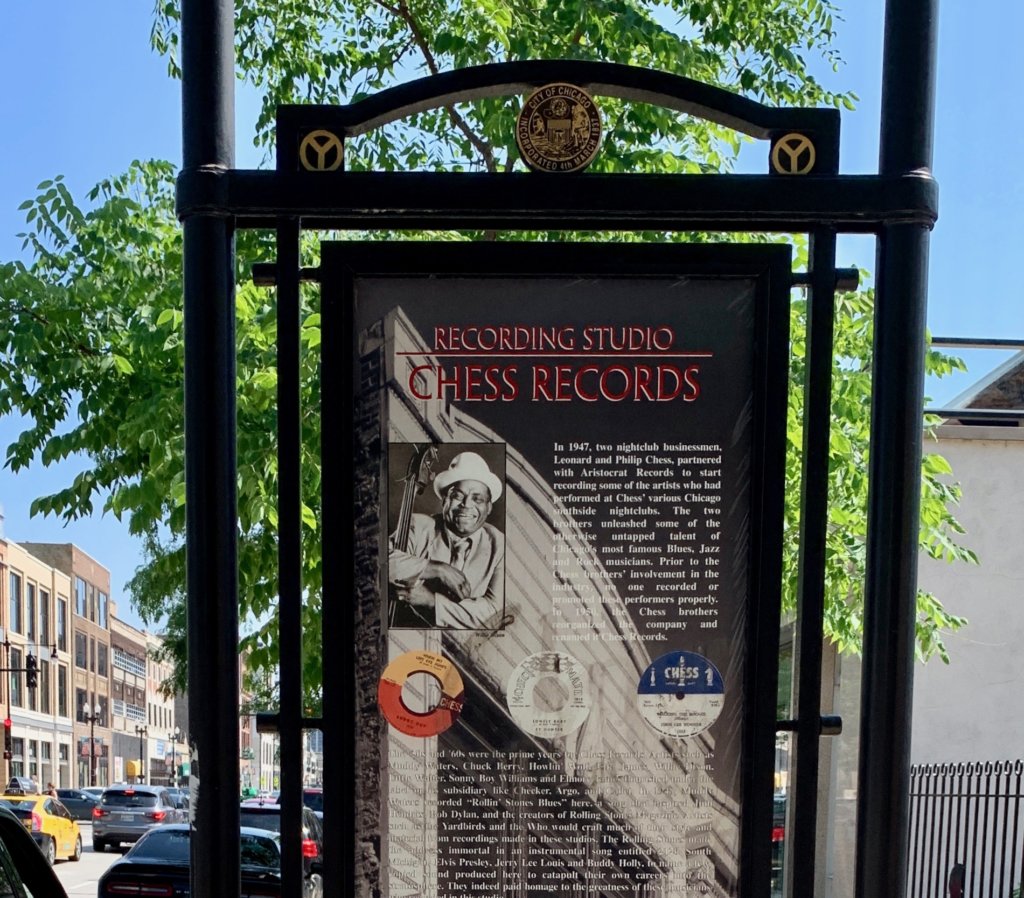
In 1968, Leonard and Phil Chess, founders of the firm, sold it to a company called GRT, which promptly turned around and sold it to Sugar Hill Records in the mid-1970s. MCA Records, part of the entertainment conglomerate that counts among its holdings Universal Pictures, now owns the 10,000 hours of Chess recordings and is presently reissuing the Chess artists to newer, younger audiences.
More than anywhere else in the world, Chess Records in Chicago was famous for popularizing the blues and helping introduce it to the mass market — both domestically and overseas. And this introduction, according to many in the music industry, literally changed the course of music history.
Listen to The Best of Chess Records on Amazon Music as you read! As an Amazon Associate, we earn from qualifying purchases.
The Story of Chess Records in Chicago
It began in 1946 when the Chess brothers were operating a dingy bar at 3905 S. Cottage Grove called the Macamba, which was a dark, smoky lounge where musicians often hung out. Lionel Hampton, Louis Armstrong, Charlie Parker and Ella Fitzgerald sat in the house band.
Leonard Chess, acting on a hunch, left the club to establish his own record company, recording people who played at the Macamba. Leonard’s first artist, on a label he called Aristocrat, was Andre Tibbs, who sang the “Union Man Blues.”
Before the end of the decade, the Chess label was established and the firm had moved into its two-story headquarters on South Michigan Ave., about 20 blocks south of the Loop.
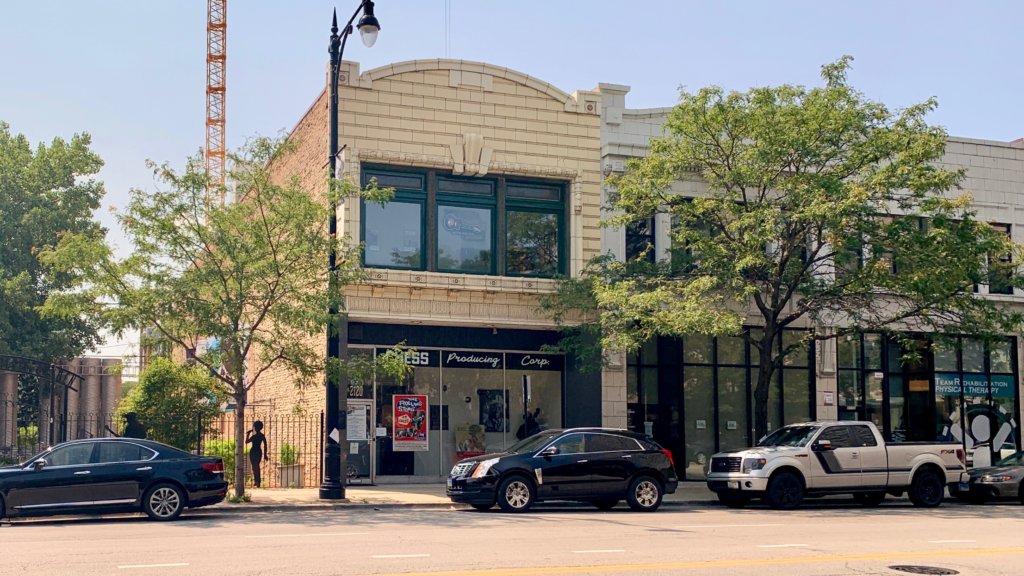
The sound the Chess brothers were after was a kind of electrified-Southern, or Mississippi Delta blues. It was a distinctive sound, featuring a hard-driving beat that, depending on the artist, might include a little gospel, some jazz or what later would become known as “soul.” And the brothers searched throughout the South to find exactly the right type of artists to record.
The Success
Among the legendary musicians who climbed the long flight of stairs to Chess’ second floor recording studios on Michigan Avenue were Howlin’ Wolf, Bo Diddley, Sonny Boy Williamson, Ramsey Lewis, Etta James, Frontella Bass, Willie Dixon, the Rev. C.L. Franklin and his daughter Aretha and Chicago’s legendary Muddy Waters.
By the late 1950s, business at Chess Records in Chicago was booming and the company began to add other labels, including Argo, Checker, Cadet and Cadet Concept. Chess was becoming known as the international headquarters for the blues.
The Impact
And the sounds coming out of the Michigan Avenue studios were extremely influential, particularly in Britain. In Liverpool, rhythm and blues records were in great demand among local youth and particularly among two young rock band members named Lennon and McCartney.
In London, another rock-star-to-be, Keith Richards, met a young musician by the name of Mick Jagger in a record shop because he noticed Jagger had a Chess records album under his arm. Later, when Richards and Jagger put together a rhythm and blues-based rock band, they called themselves the Rolling Stones after a Chess-recorded Muddy Waters cut called “Rolling Stone.”
A few years later, when the Rolling Stones were on their first tour of America, they stopped in to record tracks for the “12 x 5” album at Chess Records in Chicago. One of the cuts earned the title “2120 S. Michigan Ave.,” a kind of dedication to the place that produced the music that influenced them the most.
“I recorded some of my biggest hits at that address,” said rock pioneer Chuck Berry in the Chicago Sun-Times. “I have a lot of memories of it. They were great days of great music.”
The Legacy
Although Chess Records in Chicago vanished from the local scene when the company was purchased by GRT in 1968, the building where it all took place on south Michigan Avenue still stands today. It achieved landmark status from the City of Chicago in 1990.
Today the building is owned by the estate of legendary blues artist Willie “Wang Dang Doodle” Dixon and it has become a museum. The organization that operates it is called the Blues Heaven Foundation, which raises funds for music scholarships, helps supplement the income of blues musicians and helps promote the blues legacy.
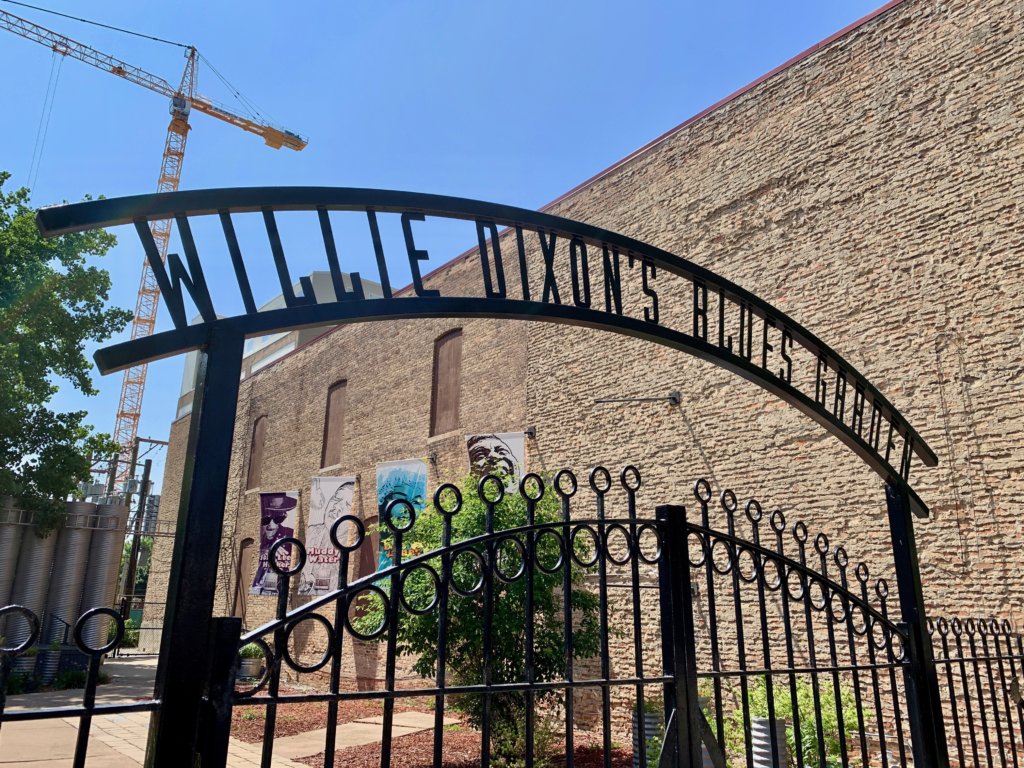
Chess Records, 2120 S. Michigan Ave. can be seen on our “Prairie District: Street of the Elite” tour.
Holder of two journalism degrees, including a masters from Northwestern University, Tom Schaffner is a native of the Chicago area and has spent nearly 50 years as a writer, editor, publisher and professional communications consultant. He was also the founder, editor, and publisher of the Chicago File, a newsletter for former Chicagoans. Tom is also the co-owner of L Stop Tours.
POPULAR TRIPS
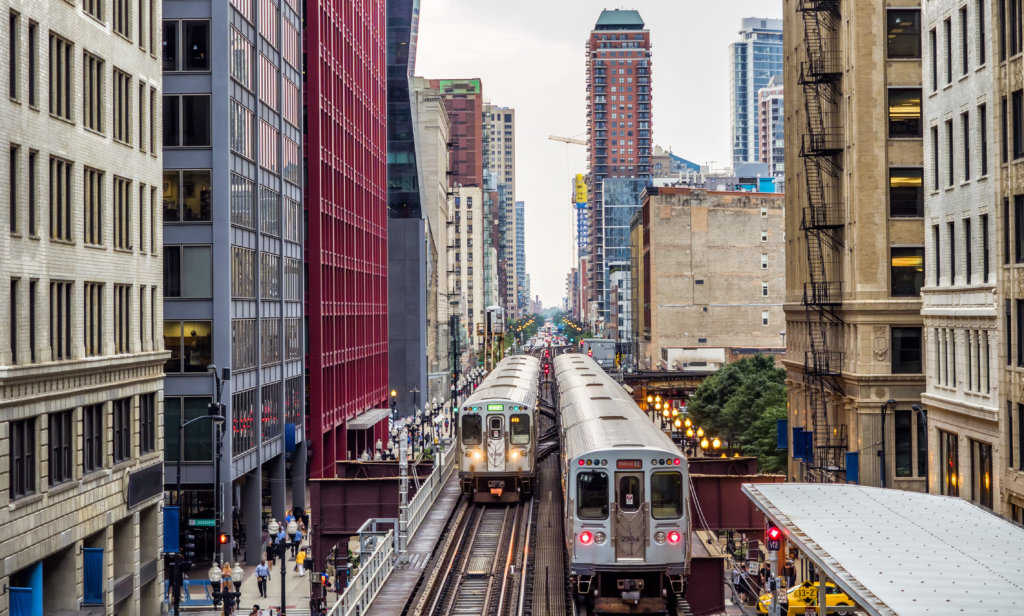
Duration: 3.5 hours
Price: Adult $65
- Tour price includes transit fees. Food/beverages purchased by guests.
- Tour begins and ends in the Loop.
- Walking distance: 1.5 miles

Duration: 3.5 hours
Price: Adult $65
- Price includes transit fees. Food/beverages purchased by guests.
- Tour begins and ends in the Loop.
- Walking distance: 1.1 miles
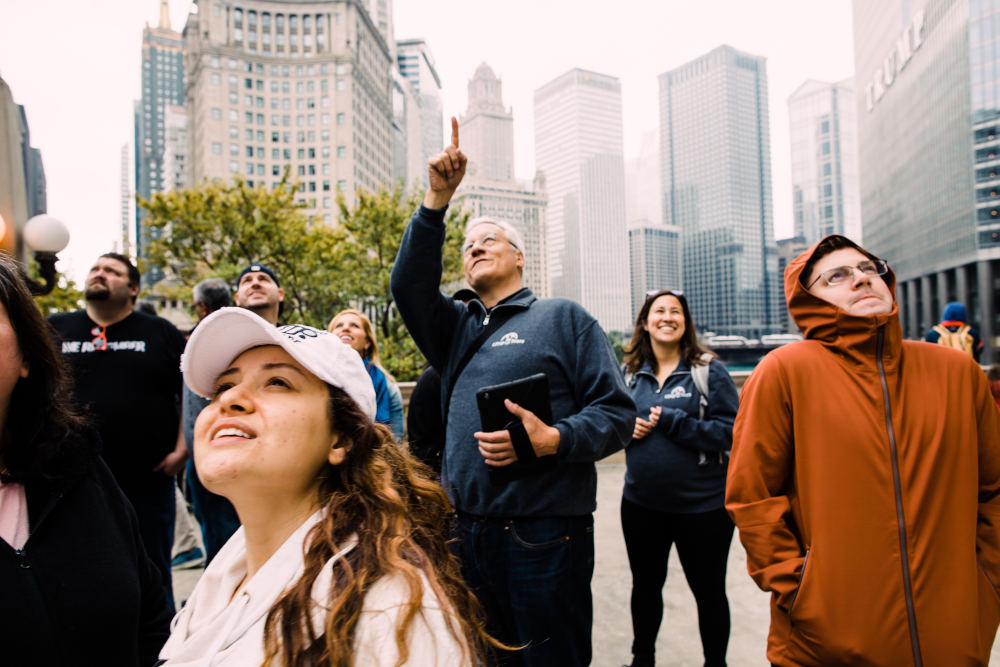
Duration: 3 hours
Price: Adult $65
- Tour price includes professional tour guide, train ride. Food/beverages purchased by guests.
- Tour begins and ends in the Loop.
- Walking distance: 1.5 miles
NEWSLETTER
Stay in the LOOP and subscribe to our monthly newsletter today!
